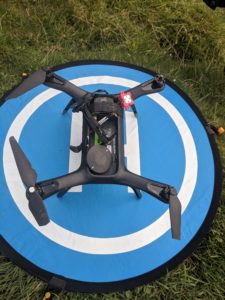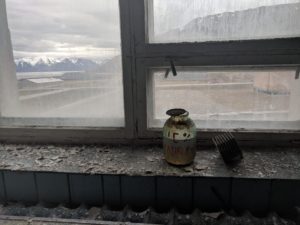My primary stated goal in attending the course on Svalbard was to learn to fly a drone. Mission accomplished! Then failed (see pictures)! Then accomplished again! We collected a ton of really fun data by flying these drones and photographing the sites our excellent plant researchers had their noses in. On the scientific and analytic side, I definitely garnered more skills in software analysis of these kinds of data, which is the name of the game as far as actually leveraging or efforts to understand biology. At our peak we were generating multiple GB’s of data every day from photography, and the ability to crunch these numbers taught us tons about the plants and landscape of Svalbard. Such a unique place.
One thing I learned about myself this course: don’t make promises you can’t keep. I really enjoyed collaborating with my group, but handling data, doling out responsibilities on a day-to-day basis and taking care of all the major organizational tasks associated with research is really hard! I almost ruined our hard work multiple times by deleting our data, losing our samples, waking up late, or something else silly like that. Doing good research just means having yourself together as a person–which can be really hard too!
Svalbardians have a pretty visceral understanding of climate–or at least they think they do. Still, scientists agree the effects of climate change are most apparent in arctic ecosystems, and most locals seem to be familiar with at least the basic issues. They also seem to be in support of moving to make changes to protect the future. The irony of Svalbard’s history (and present) as a coal-mining operation is apparent to many in the small township of Longyearbyen, even as they observe the annual reduction in sea ice abundance.
My experience surveying people in Svalbard was pleasant–thankfully everyone knows English (a fact that continues to astonish me as an American abroad). I hope the information, statistically aggregated and compared to communities globally, can yield some insight. For me they were mostly pleasant conversations, and an interesting exposure to the working class on Svalbard. This was in stark opposition to the highly accomplished, sophisticated people inhabiting UNIS, which was truly one of the most advanced and modern research centers I had ever seen. However remote, Svalbard and UNIS enjoy all of the affluence of Europe, and it was a true pleasure being there.


